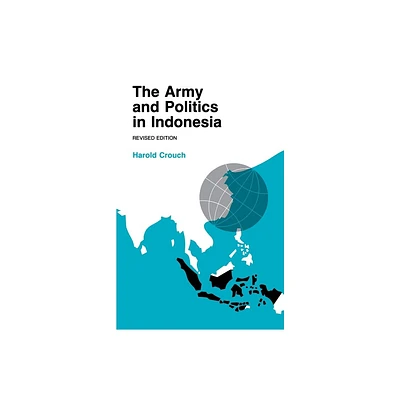Home
Amir Sjarifoeddin: Politics and Truth Indonesia, 1907-1948
Loading Inventory...
Barnes and Noble
Amir Sjarifoeddin: Politics and Truth Indonesia, 1907-1948
Current price: $130.00


Barnes and Noble
Amir Sjarifoeddin: Politics and Truth Indonesia, 1907-1948
Current price: $130.00
Loading Inventory...
Size: Hardcover
*Product Information may vary - to confirm product availability, pricing, and additional information please contact Barnes and Noble
Amir Sjarifoeddin
explores the experiences of a central figure in the Indonesian revolution, whose life mirrored the idealism and contradictions of the anti-colonial and post-war world of twentieth century Indonesia.
Amir was born at the edge of an empire in a time of change. Imprisoned by the Dutch for anti-colonialism, he was sentenced to death by the Japanese for anti-fascism. He survived to become the prime minister of the new Indonesian republic. Disappointed by the direction the Indonesian elites were taking, Amir turned increasingly to the left. In 1948 he joined the armed uprising against both the Indonesian government and the corruption of the national revolution, and was captured and executed as a traitor.
In
, Rudolf Mrázek unveils the human dimensions of a figure who is widely mythologized but often poorly understood. Through Sjarifoeddin's life, it is possible to study the moral ambiguity and complexities of the political revolutions of the twentieth century.
explores the experiences of a central figure in the Indonesian revolution, whose life mirrored the idealism and contradictions of the anti-colonial and post-war world of twentieth century Indonesia.
Amir was born at the edge of an empire in a time of change. Imprisoned by the Dutch for anti-colonialism, he was sentenced to death by the Japanese for anti-fascism. He survived to become the prime minister of the new Indonesian republic. Disappointed by the direction the Indonesian elites were taking, Amir turned increasingly to the left. In 1948 he joined the armed uprising against both the Indonesian government and the corruption of the national revolution, and was captured and executed as a traitor.
In
, Rudolf Mrázek unveils the human dimensions of a figure who is widely mythologized but often poorly understood. Through Sjarifoeddin's life, it is possible to study the moral ambiguity and complexities of the political revolutions of the twentieth century.


















